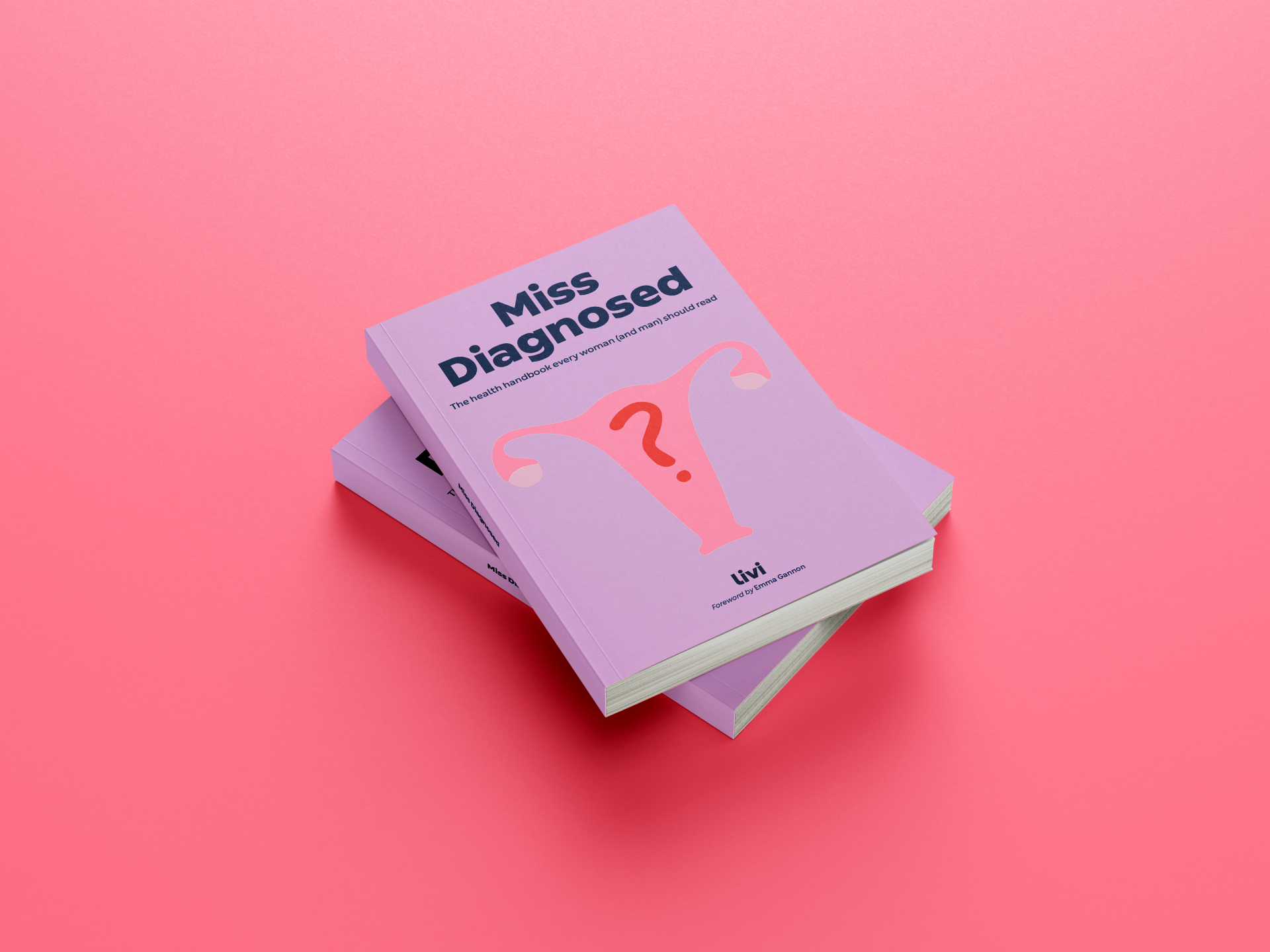With a foreword from Emma Gannon, the e-book Miss Diagnosed is part of a campaign to end the gender health gap by supporting women to advocate for themselves at the doctor.
Three million women have had to leave their job because of health issues. We’re 47% more likely to be seriously injured in a car accident (because cars are often designed using men’s measurements). And over half of women feel unable to discuss their health at work. These stats are just a small amount of evidence of the ‘gender health gap’ – the difference between attention and treatment of medical conditions between genders.
But new research shows the difference isn’t only in how our pain is dealt with, but also in how it’s diagnosed. In fact, women are 50% less likely to be diagnosed with a heart attack. And now, the GP app Livi has found that 57% of women believe they have been misdiagnosed with a health condition, rising to 64% in women between the ages of 35 and 44.
You may also like
Gender health gap: why are women diagnosed years later than men for the same diseases?
For 10% of women, it takes seven to 12 months to get the correct diagnosis, while 23% of women have waited up to 11 years to know the name of their condition. Most concerningly, 29% of women still don’t think they have the correct diagnosis, with over a quarter experiencing life-altering or threatening symptoms.
Livi’s research includes a story from a woman who had been told her perimenopausal hot flushes were actually panic attacks, and another whose GP suggested ‘dyspareunia’ (tensing during sex) was the cause of her pain when really it was endometriosis.

Now, Livi has released a free e-book, Miss Diagnosed, outlining the symptoms and treatments that are commonly misdiagnosed in women so they can learn more about what is ‘normal’ and better advocate for themselves with doctors. With a foreword from Emma Gannon, who writes that “we’re left going around in circles, wondering what is wrong with us as we move through a patriarchal world”, the e-book is designed to support women suffering due to the gender health gap.
Livi’s research shows the biggest areas of concern for women are mental health (31%), perimenopause & menopause (28%), menstruation (15%), pregnancy and birth (11%) and infertility (10%). Its handbook taps into all these areas of health, outlining symptoms and complications in common but under-recognised conditions like depression, PCOS and pelvic girdle pain.
You may also like
9 women on what ‘good mental health’ looks like to them
Closing the gender health gap can’t be our responsibility alone, so it is refreshing to see that a huge part of Livi’s campaign is the re-education of doctors.
Over a quarter of women don’t believe that doctors are properly trained in all aspects of women’s health – which isn’t surprising, given that a 2021 Freedom of Information request by Menopause Support found that 41% of UK universities don’t teach mandatory menopause education. Now Livi had pledged additional free training on women’s health to its own GPs and more than 10,000 doctors across the country.
More also needs to be done by the scientific community to ensure that medical research is done on women so that their symptoms are better understood. But if you are worried about your health and feel like one of the 49% of women who aren’t listened to by their doctor, this handbook could be a vital way into the conversation with your GP.
Download Miss Diagnosed by Livi here.
Images: Getty/Livi
Source: Read Full Article
